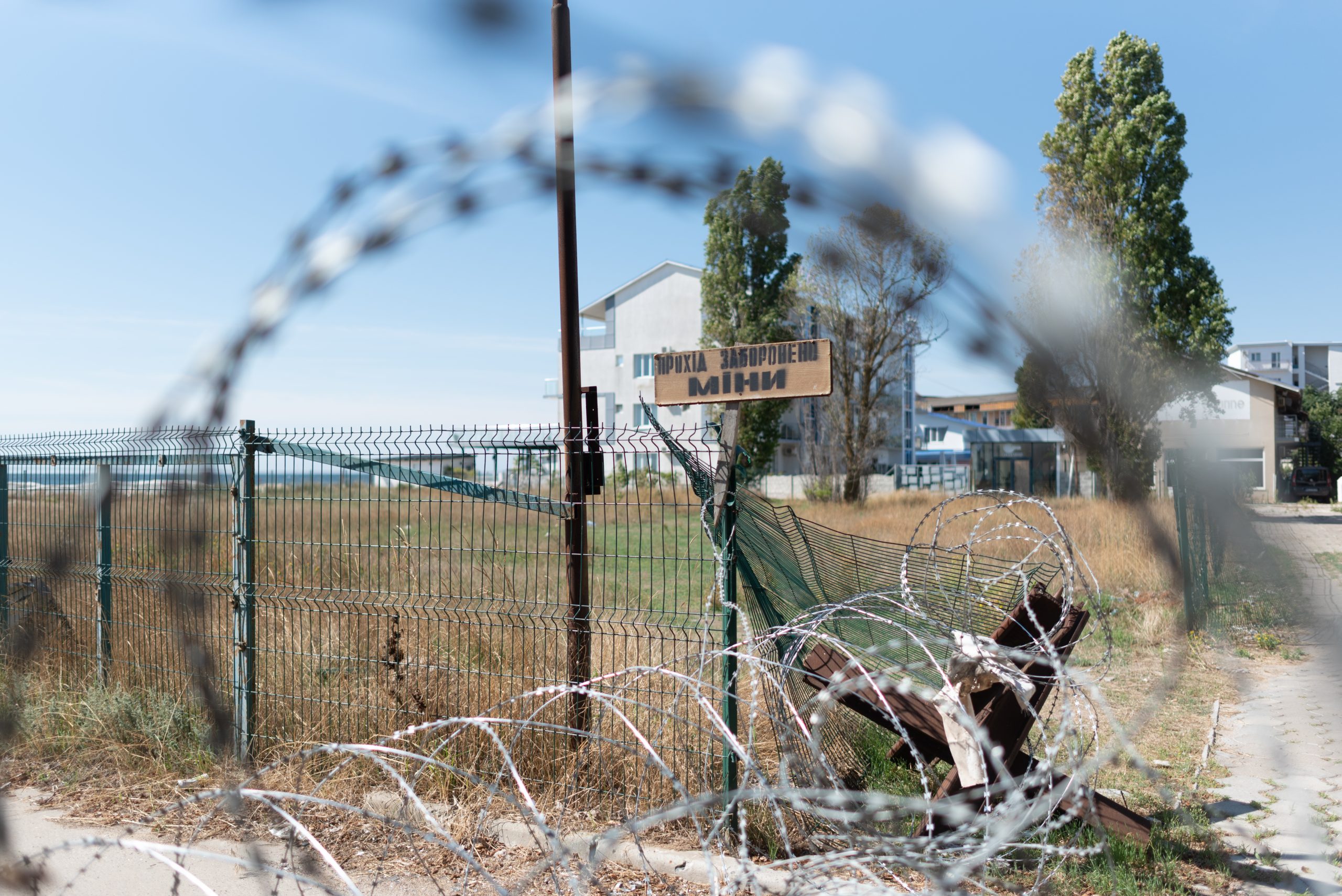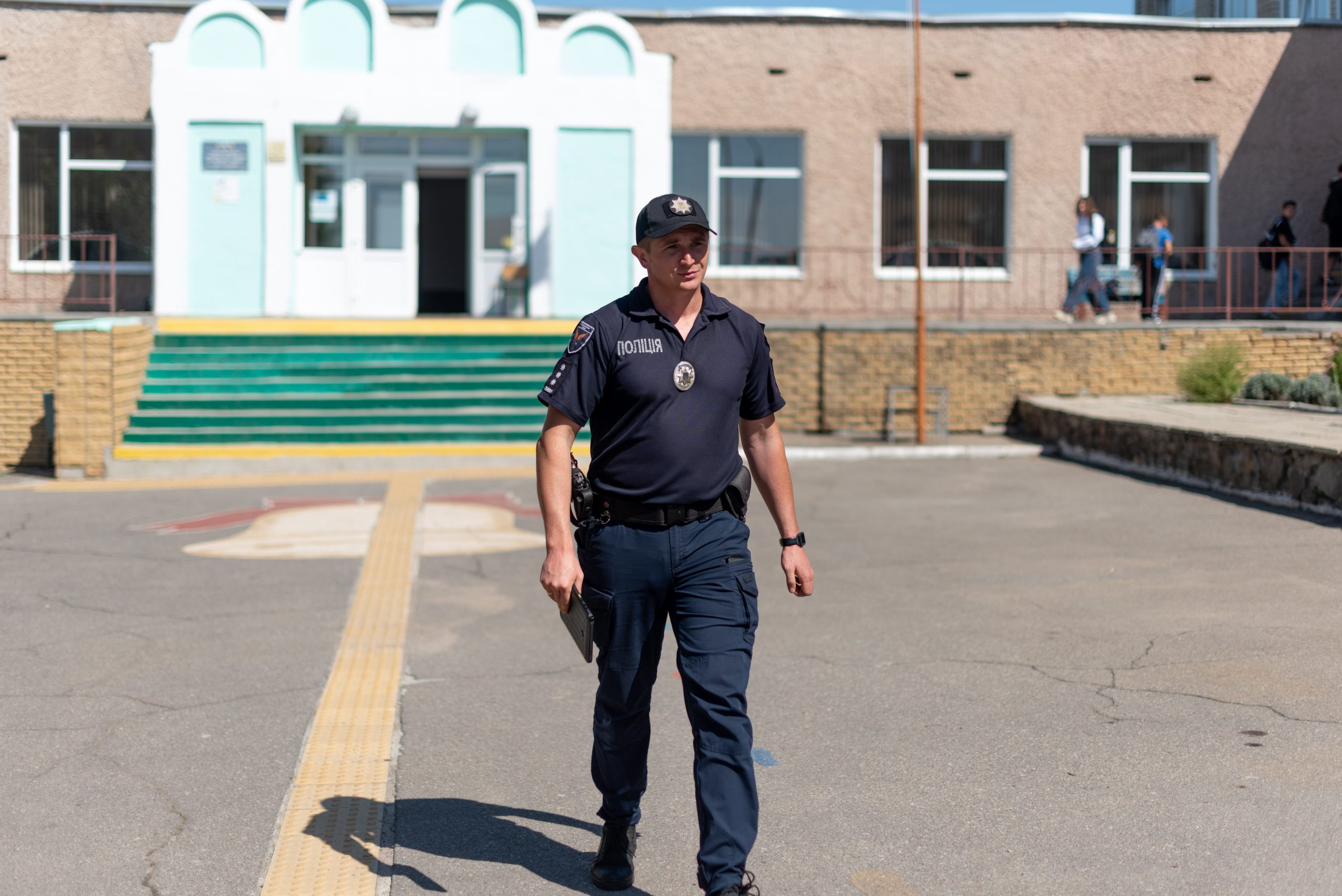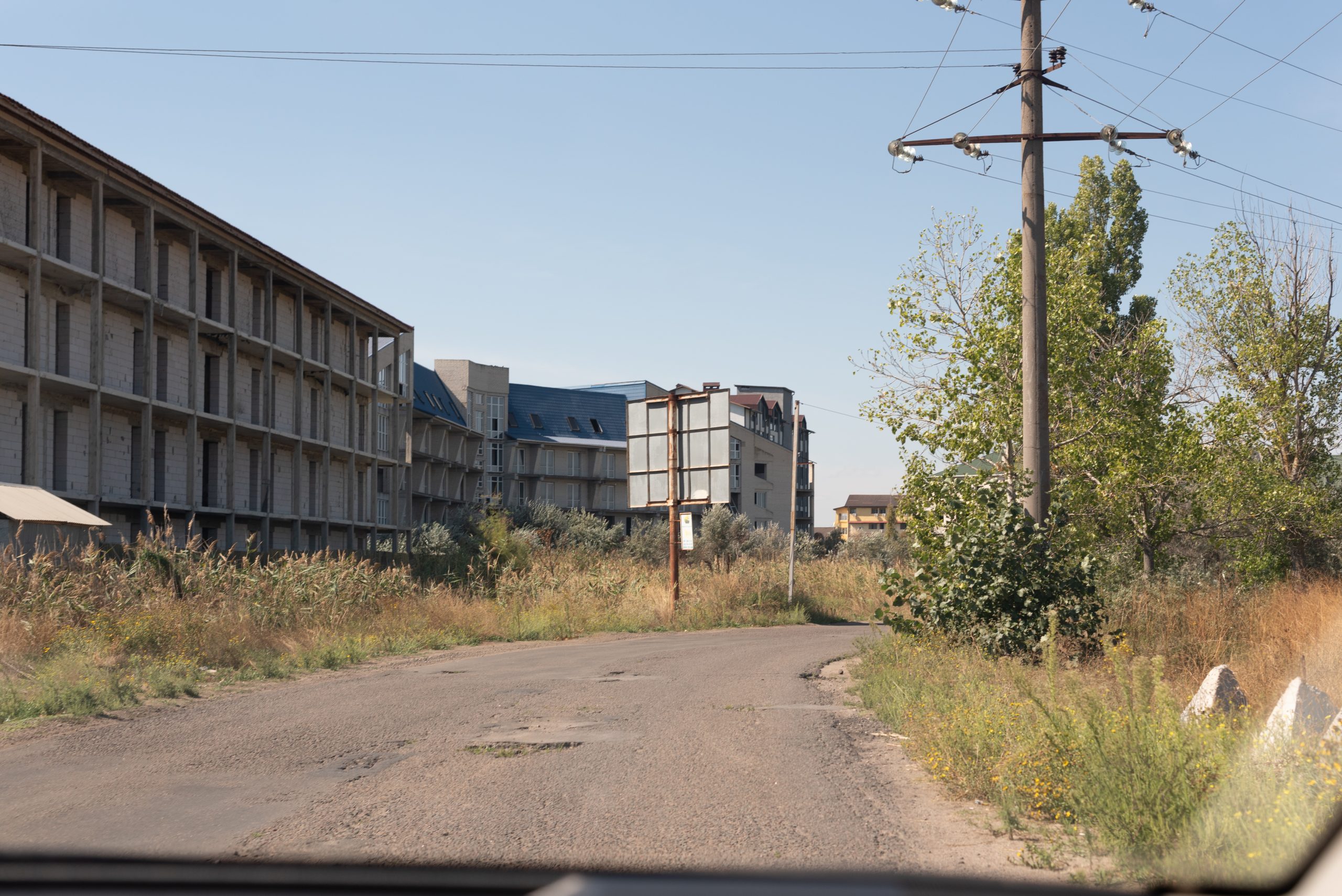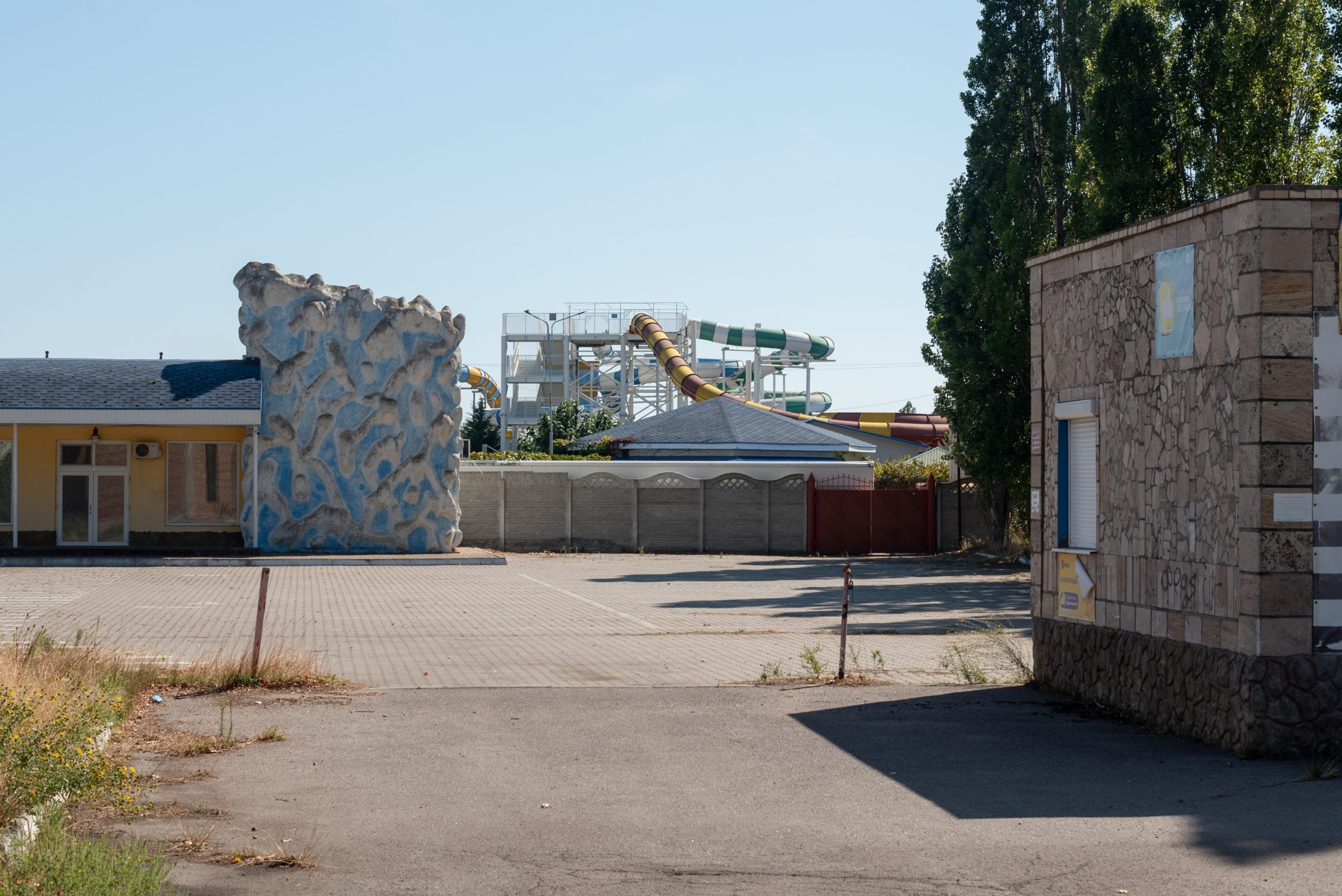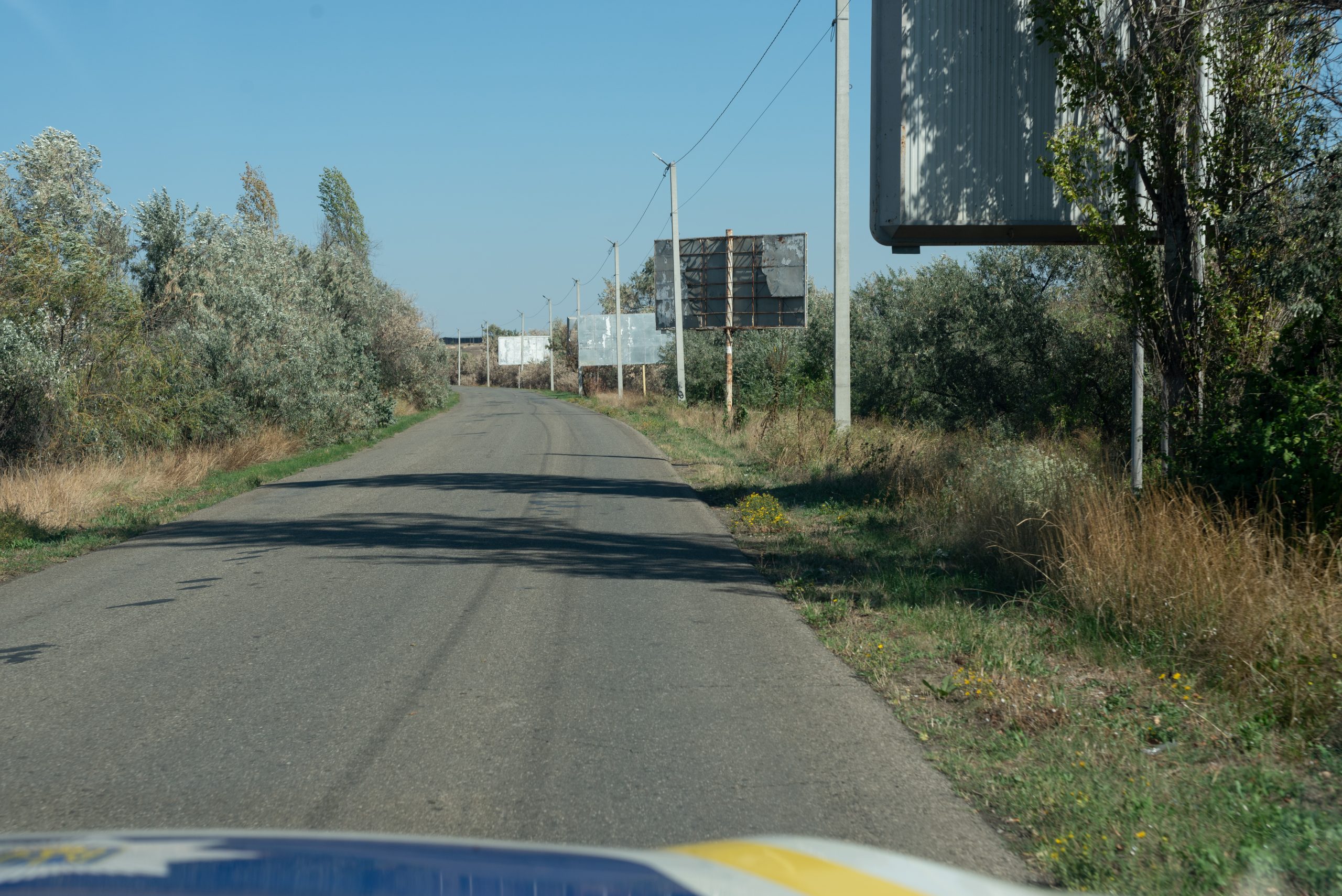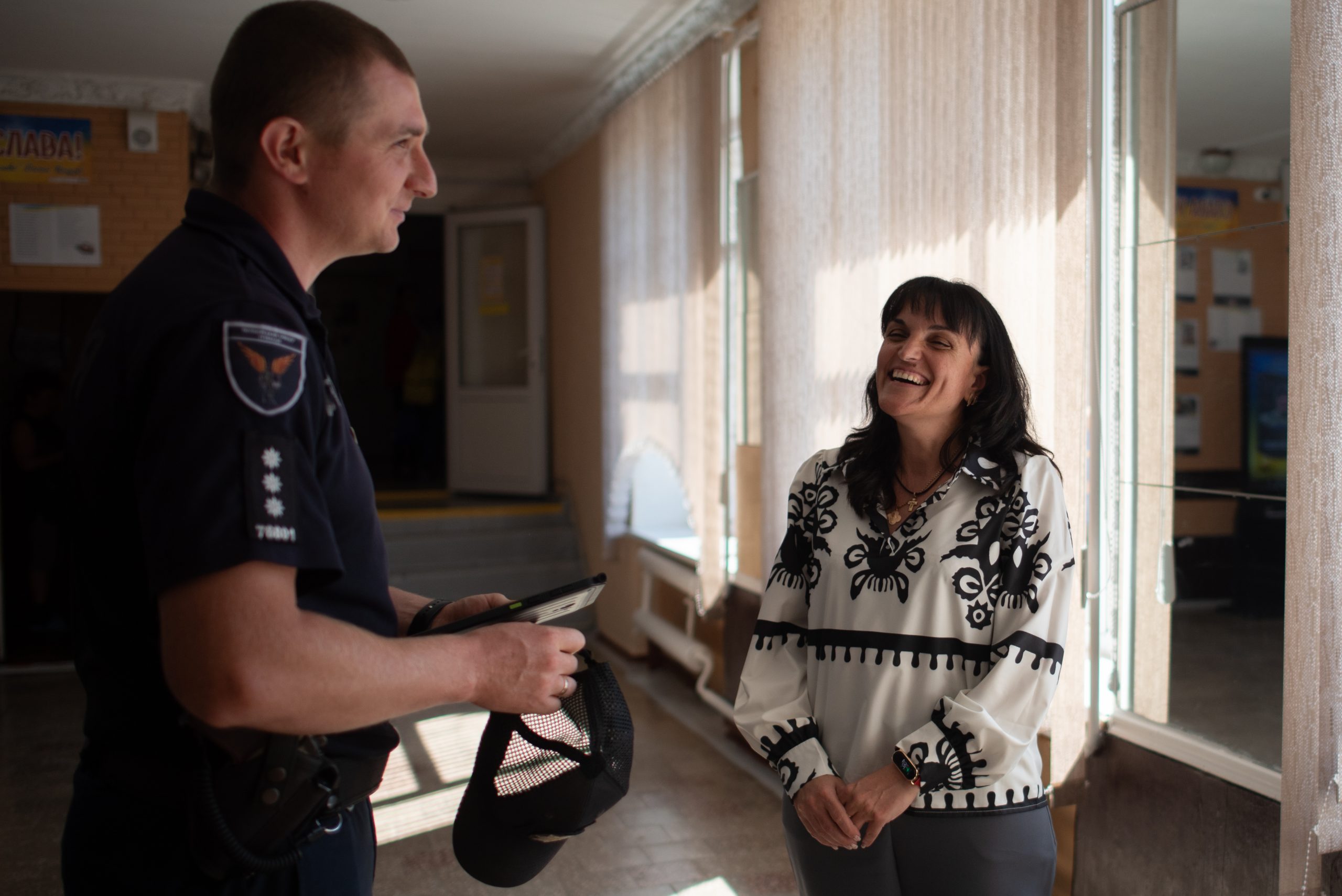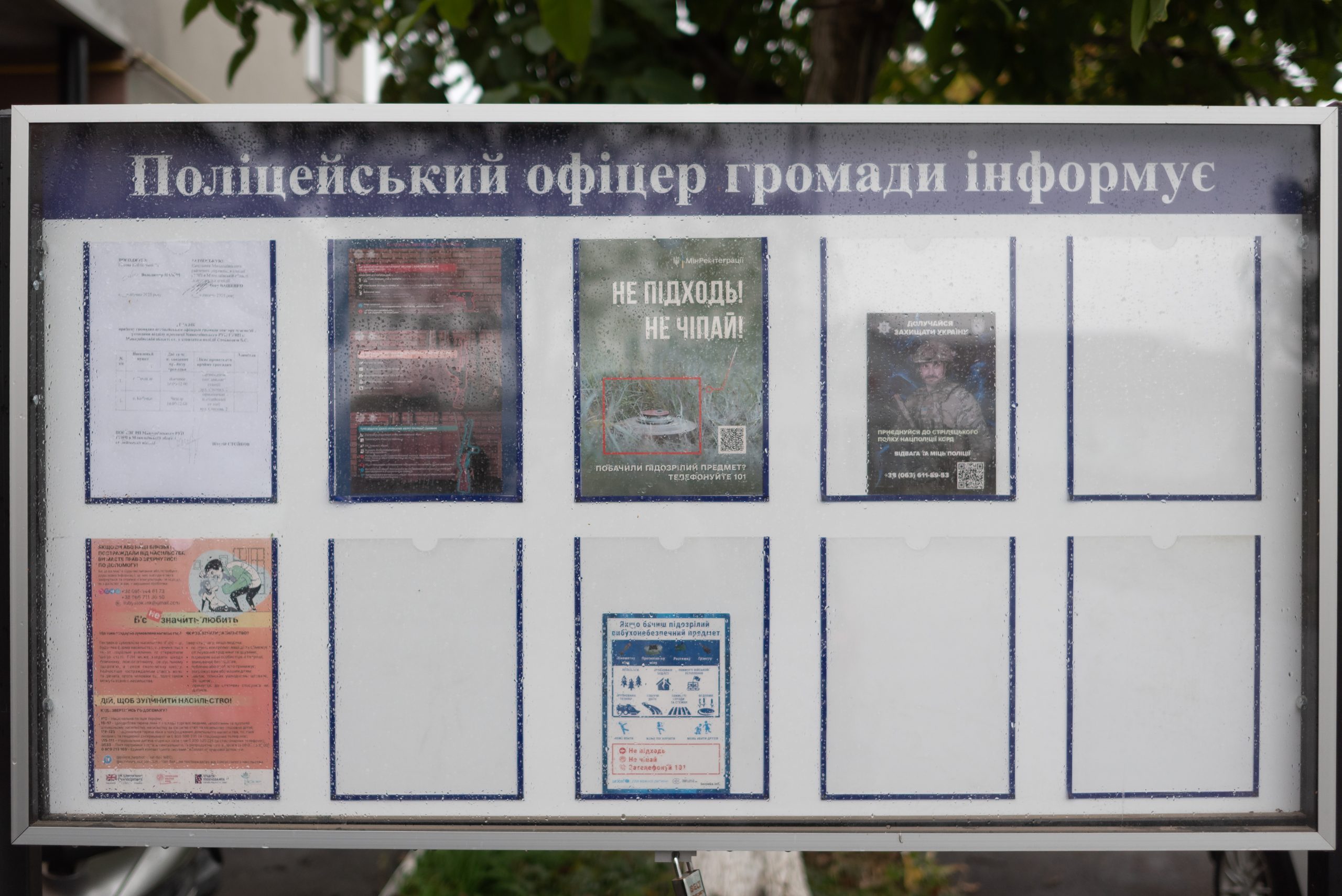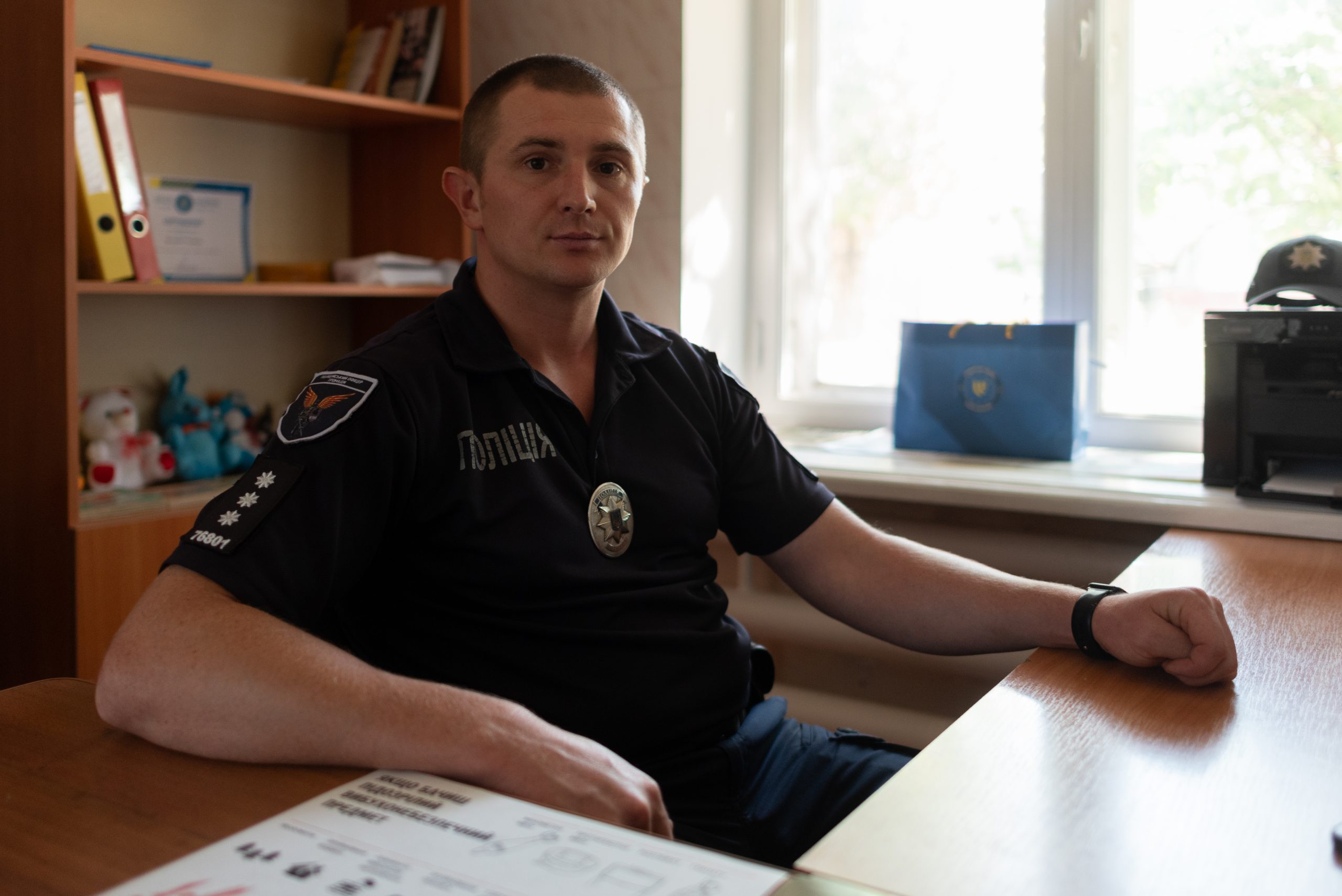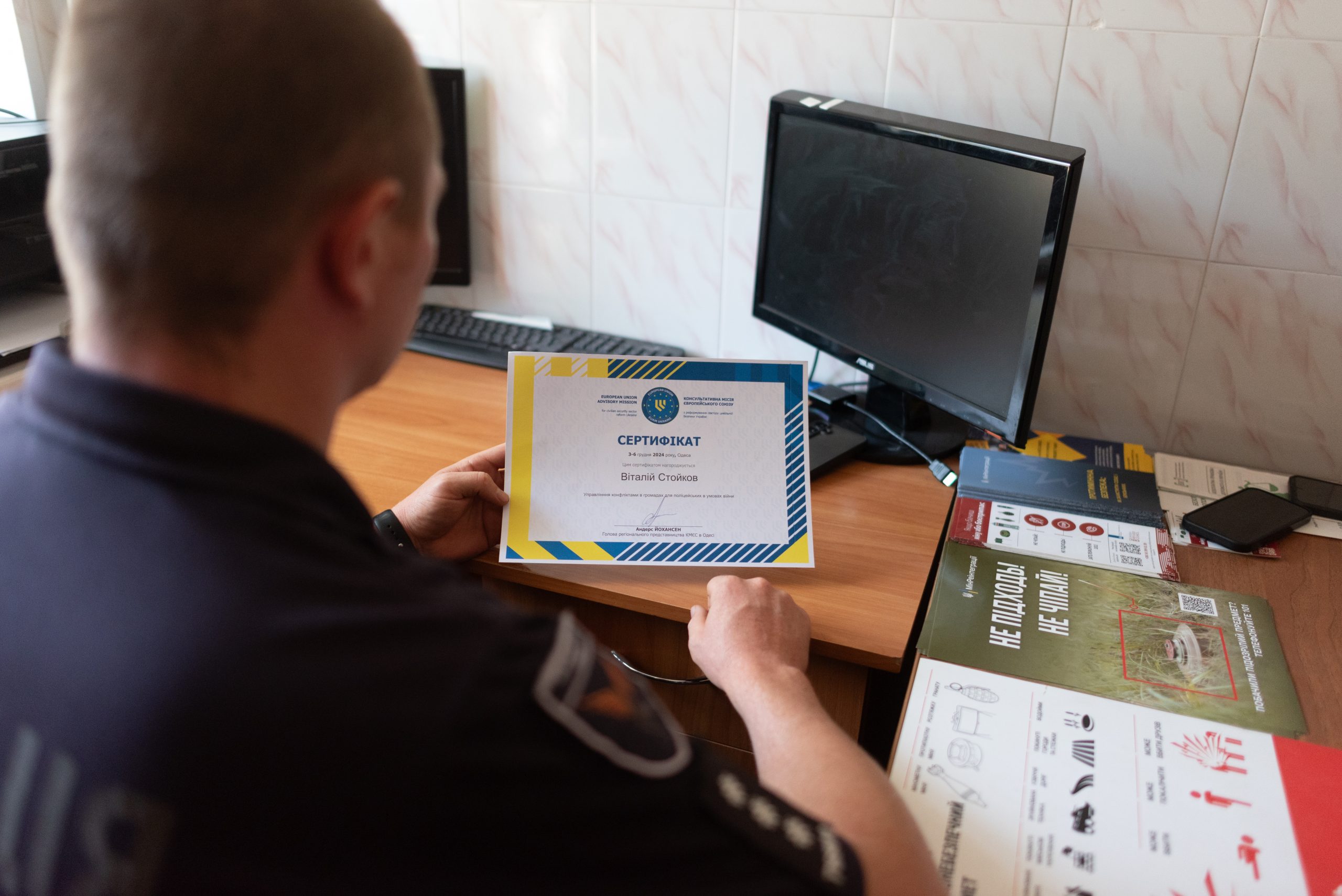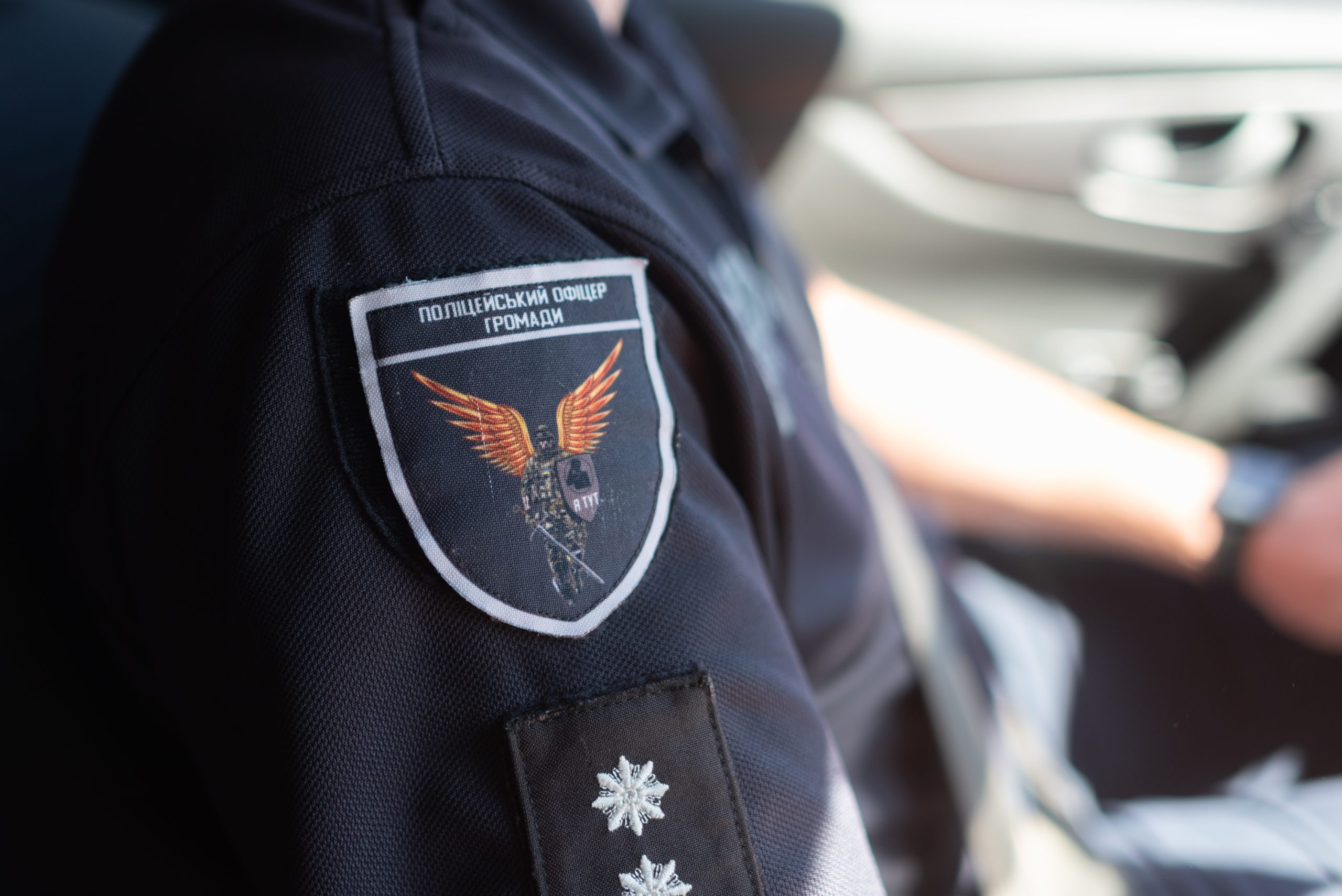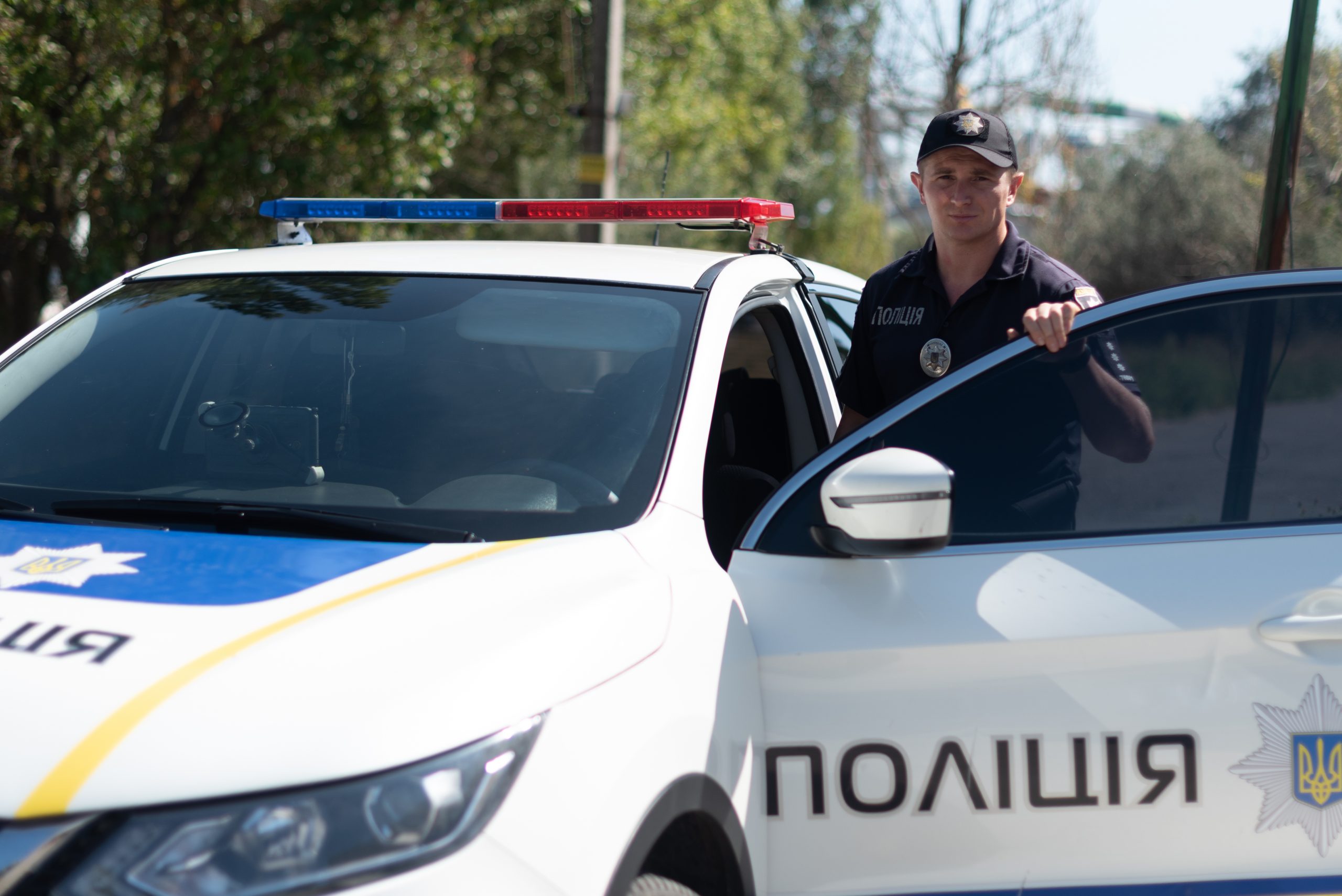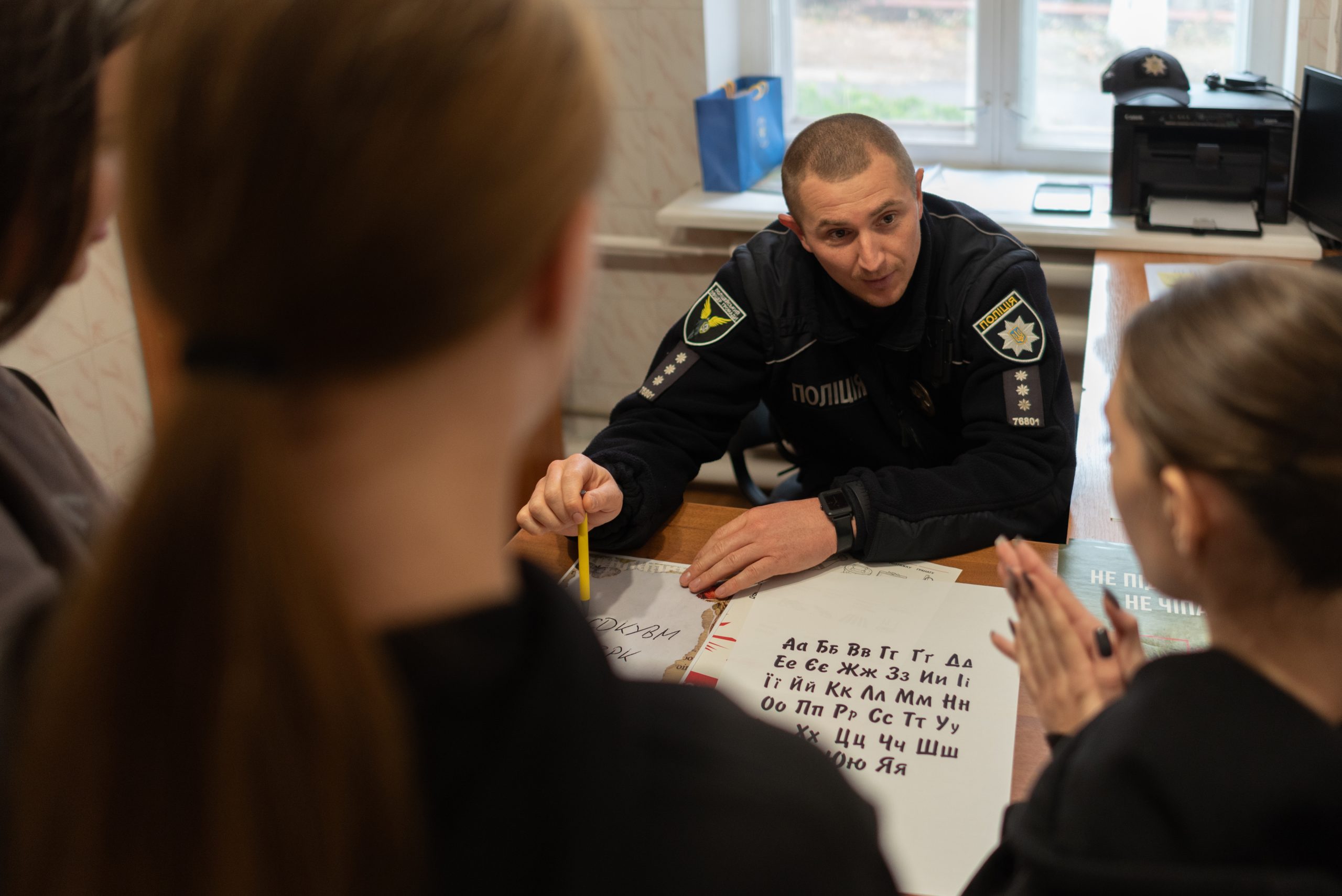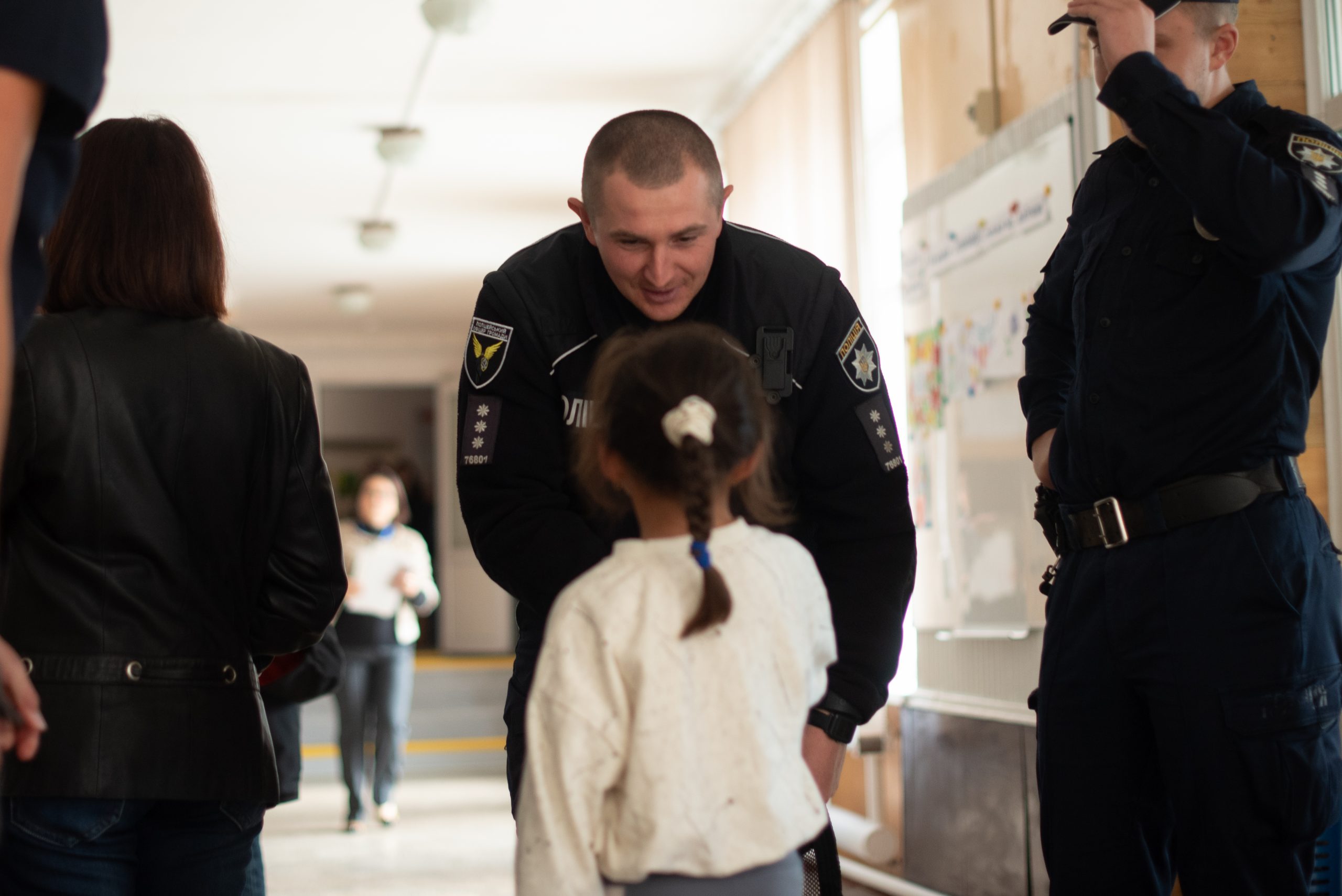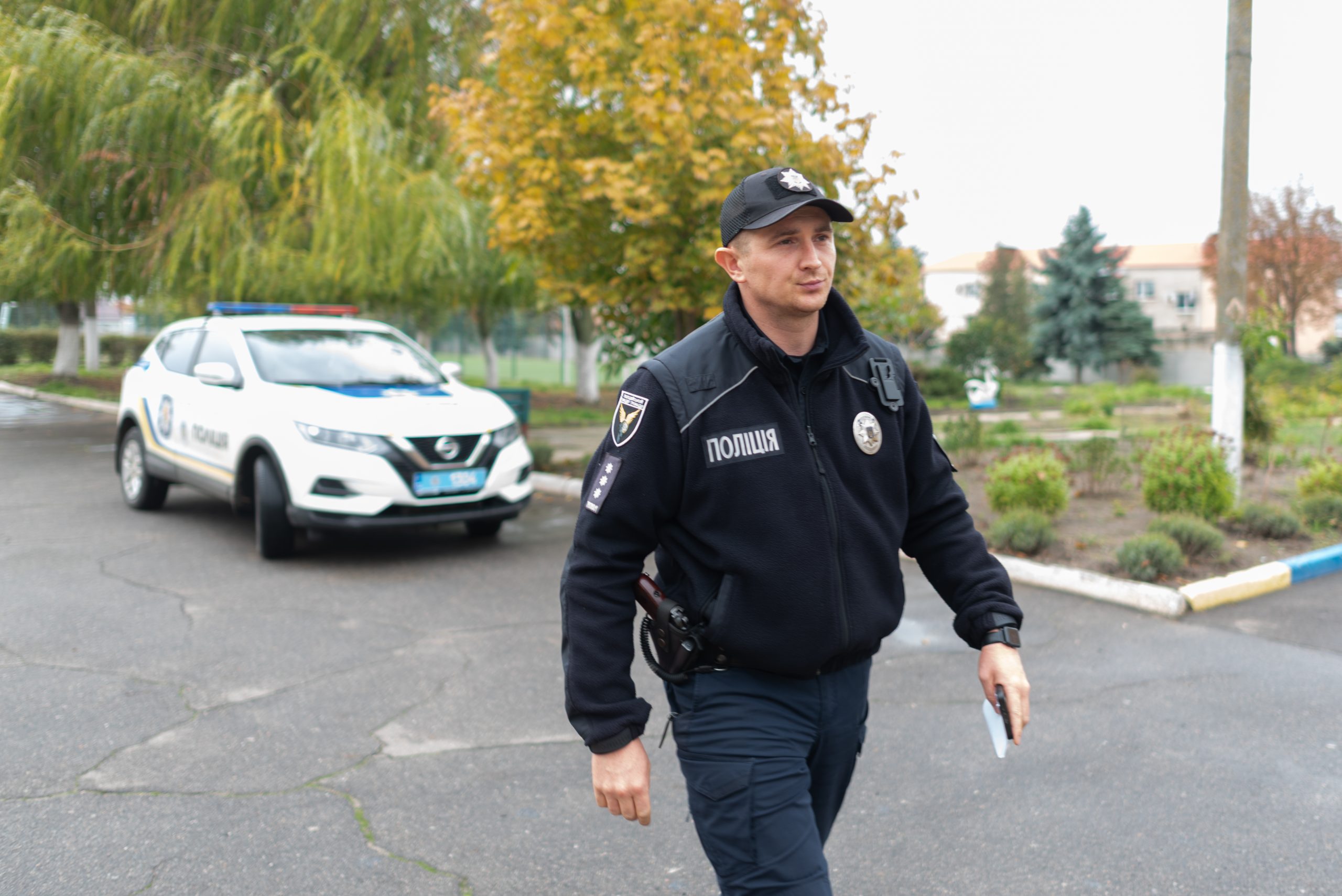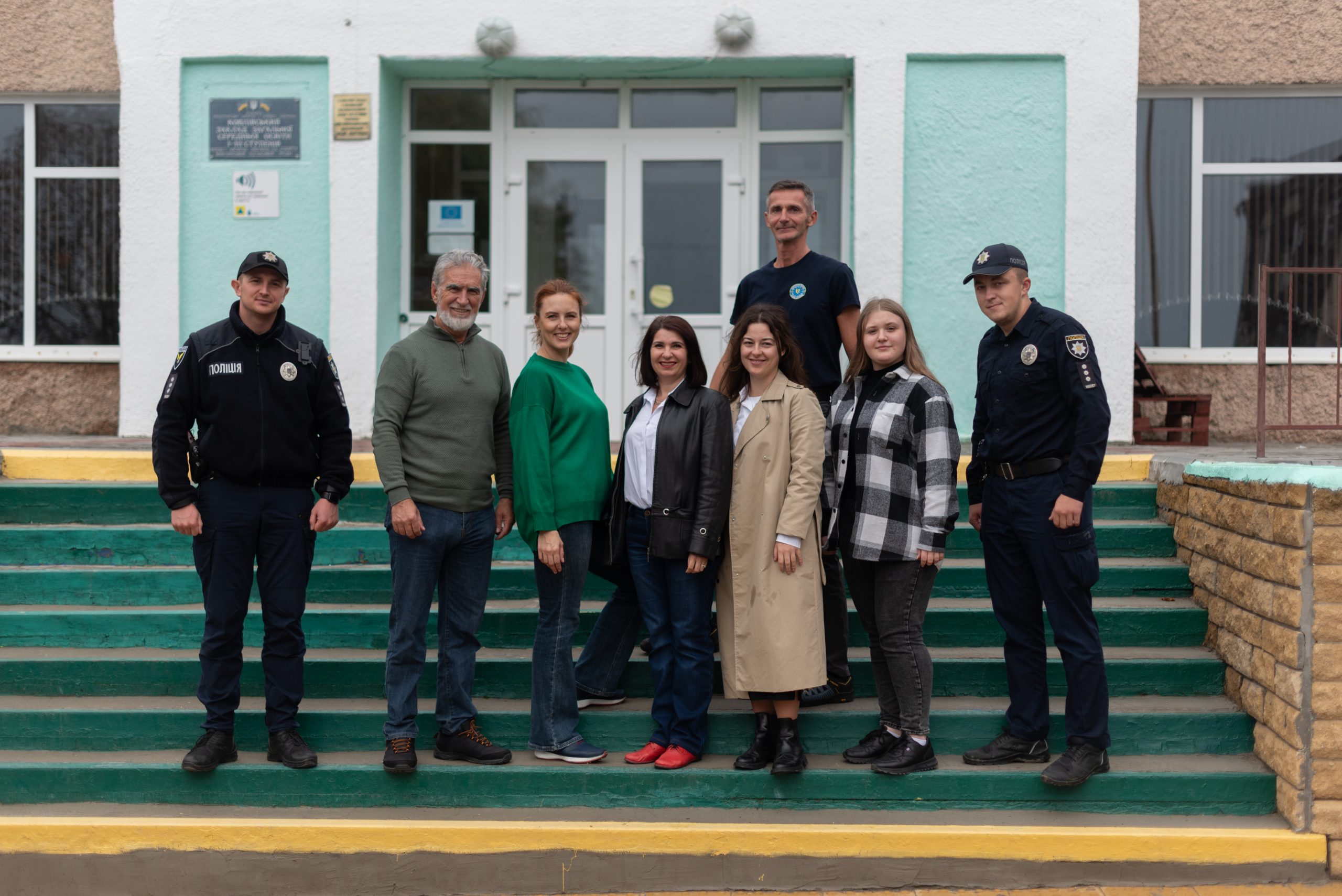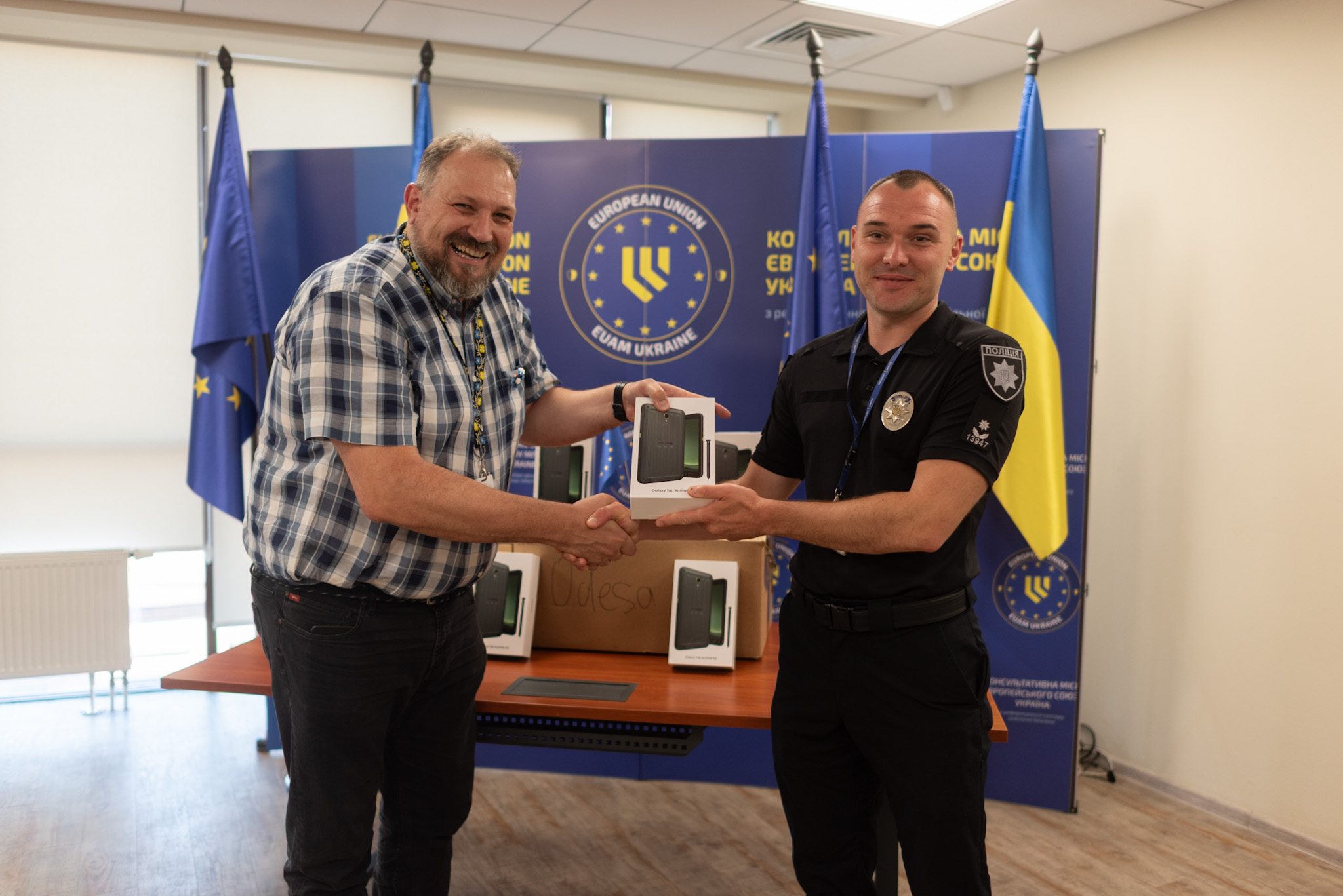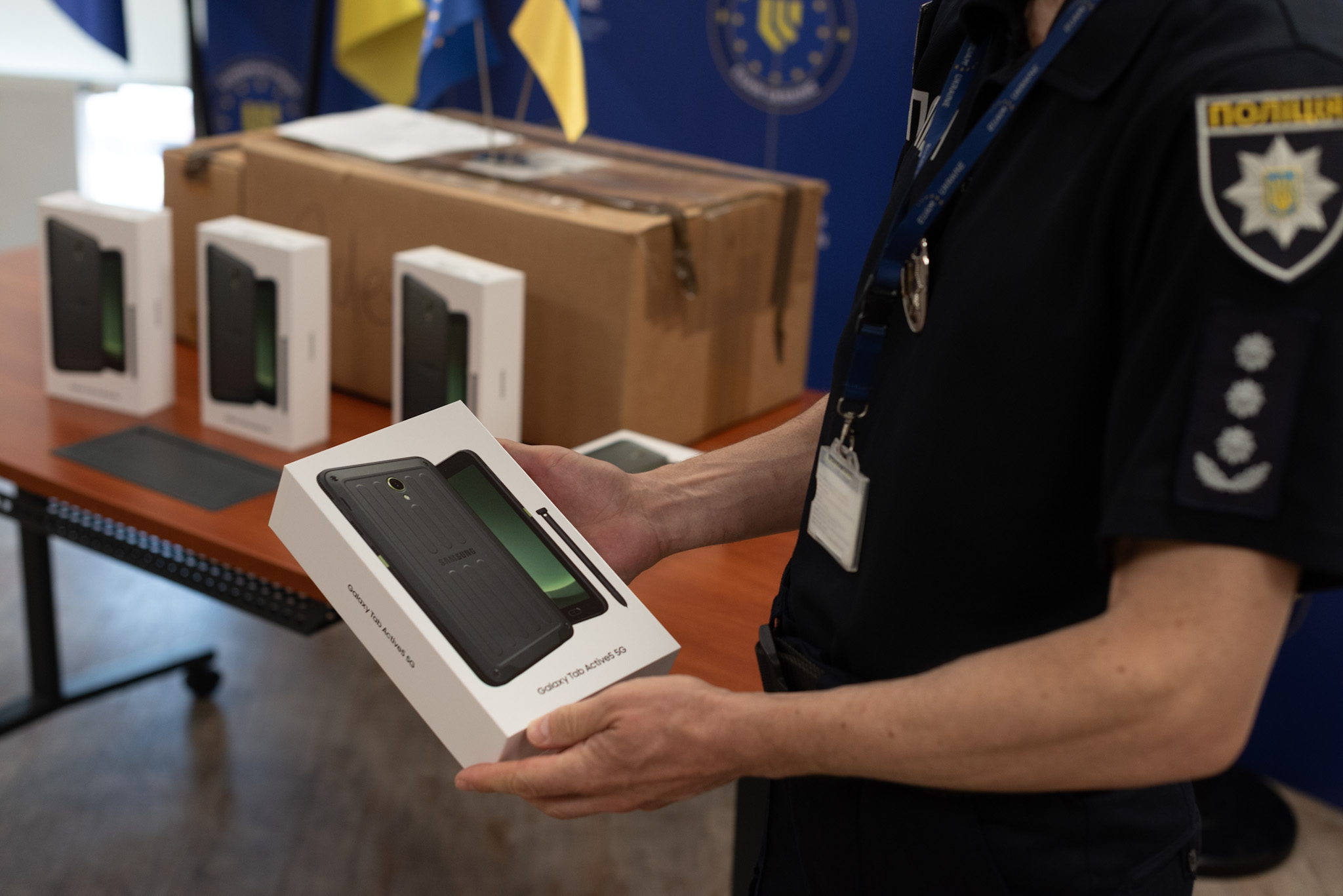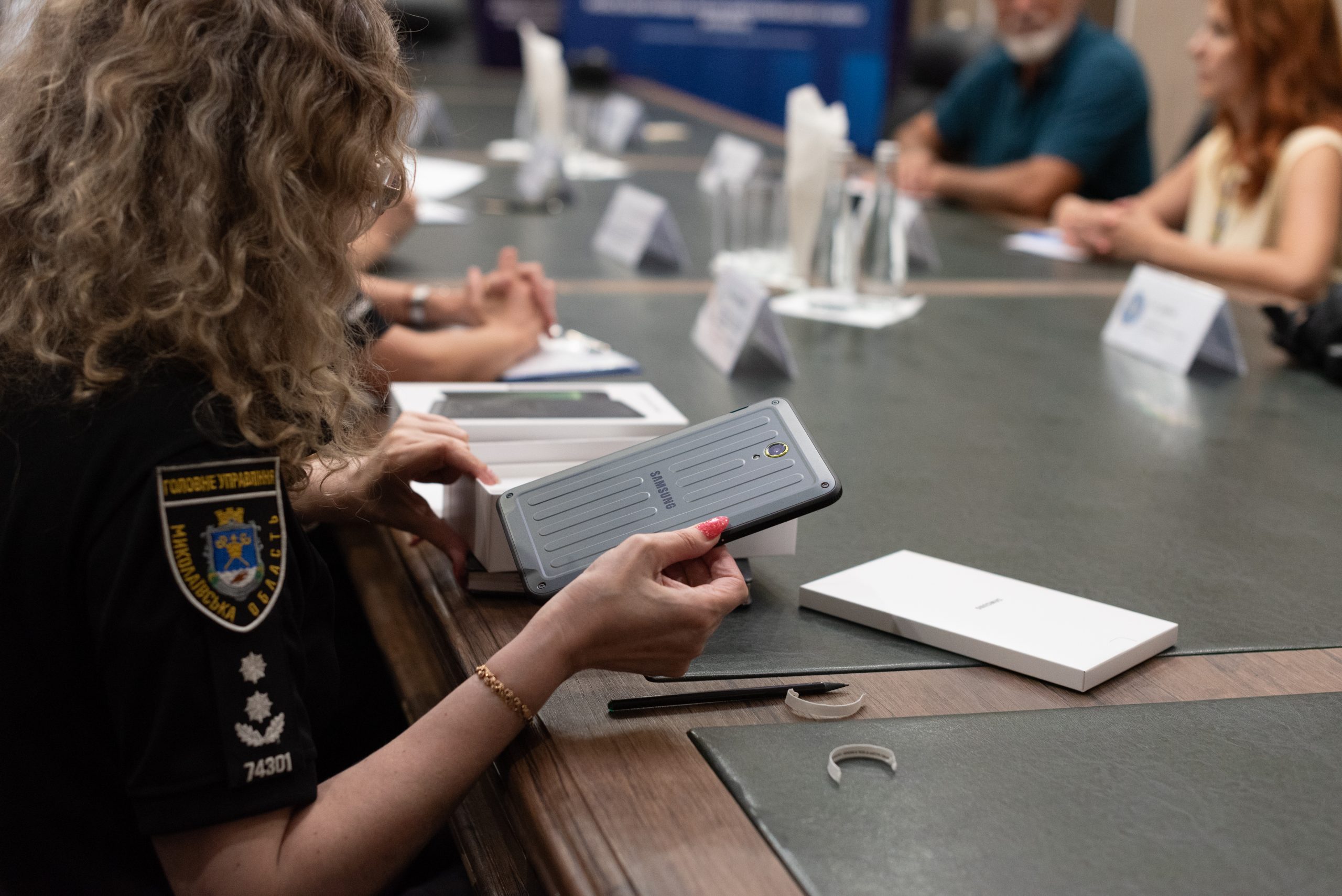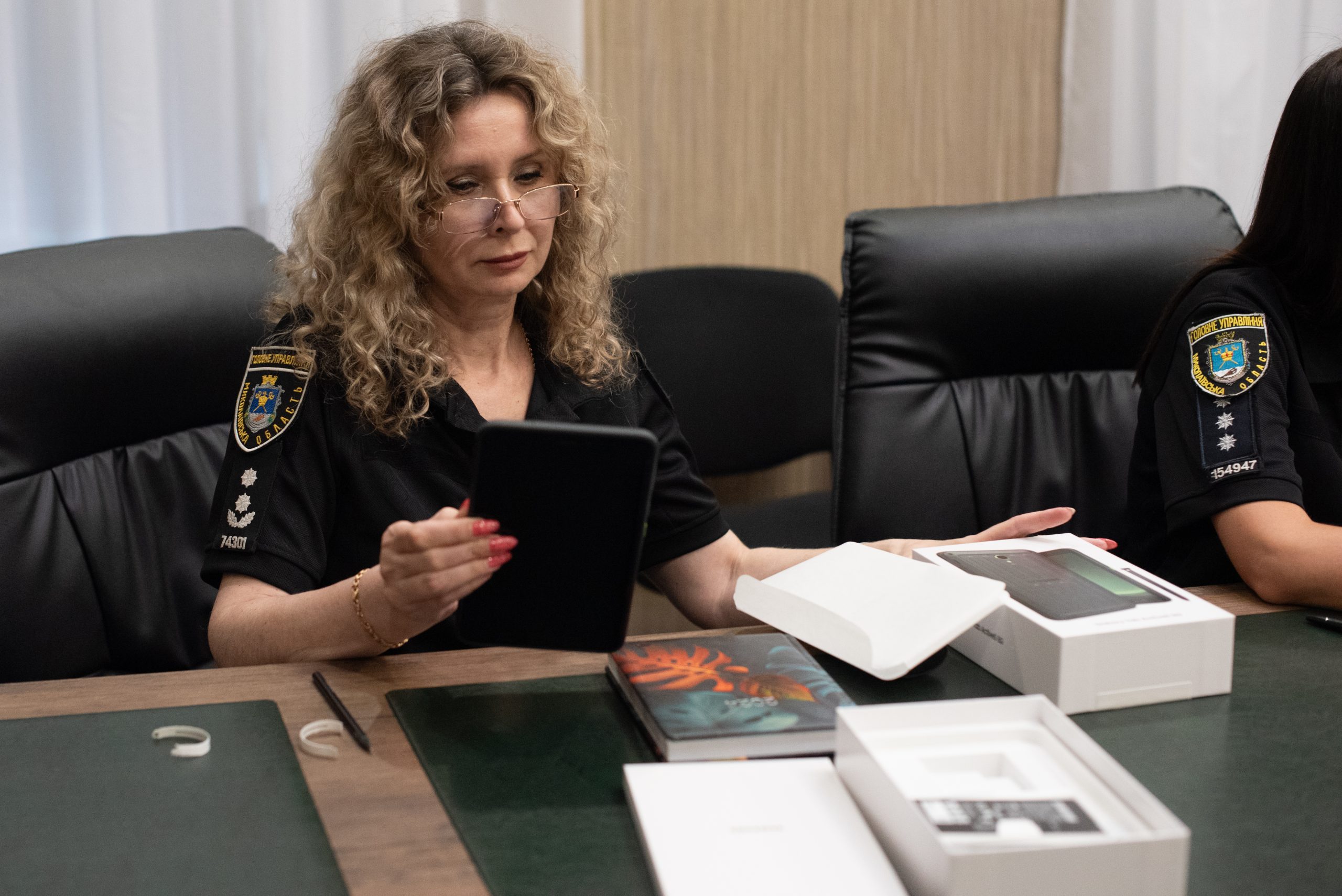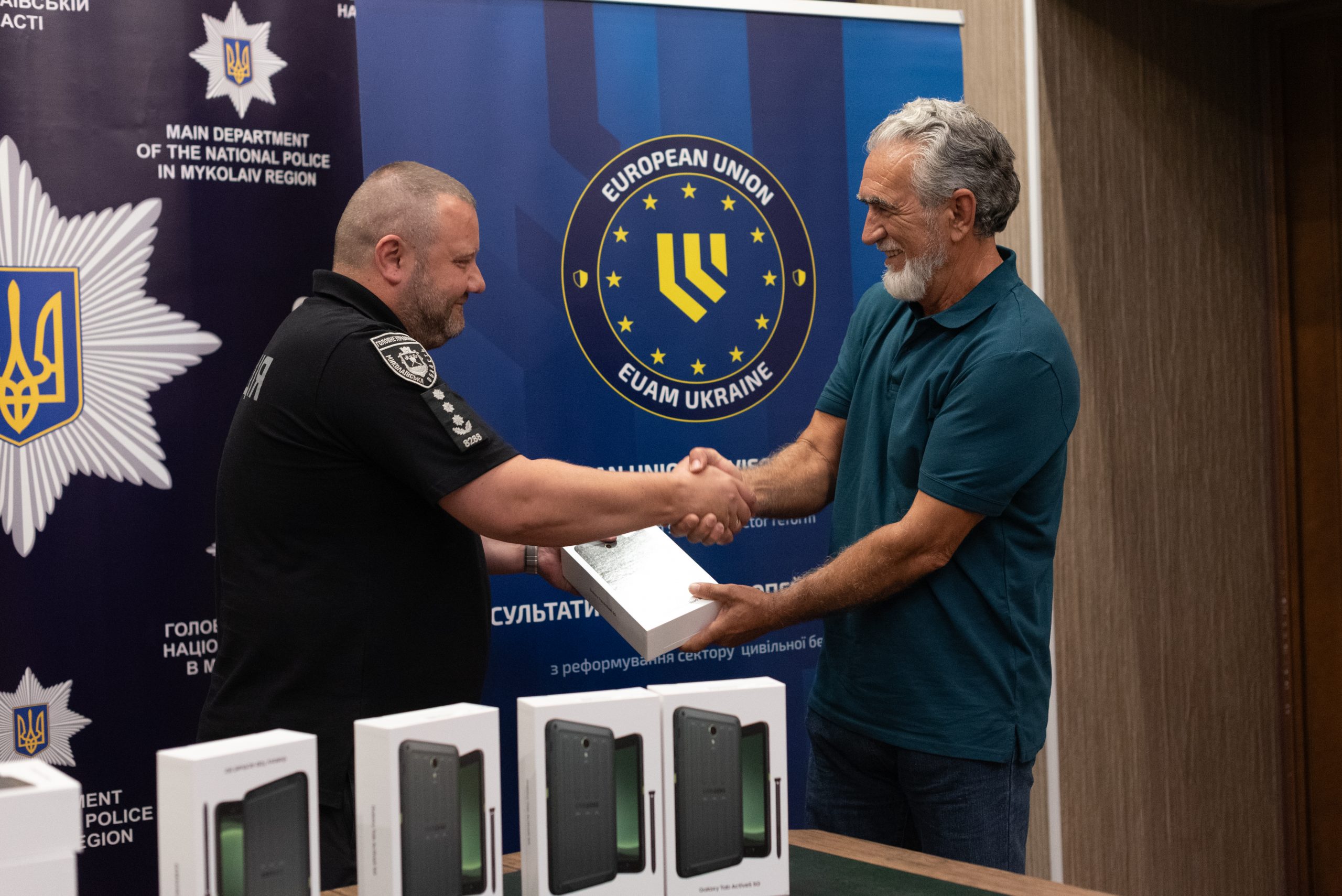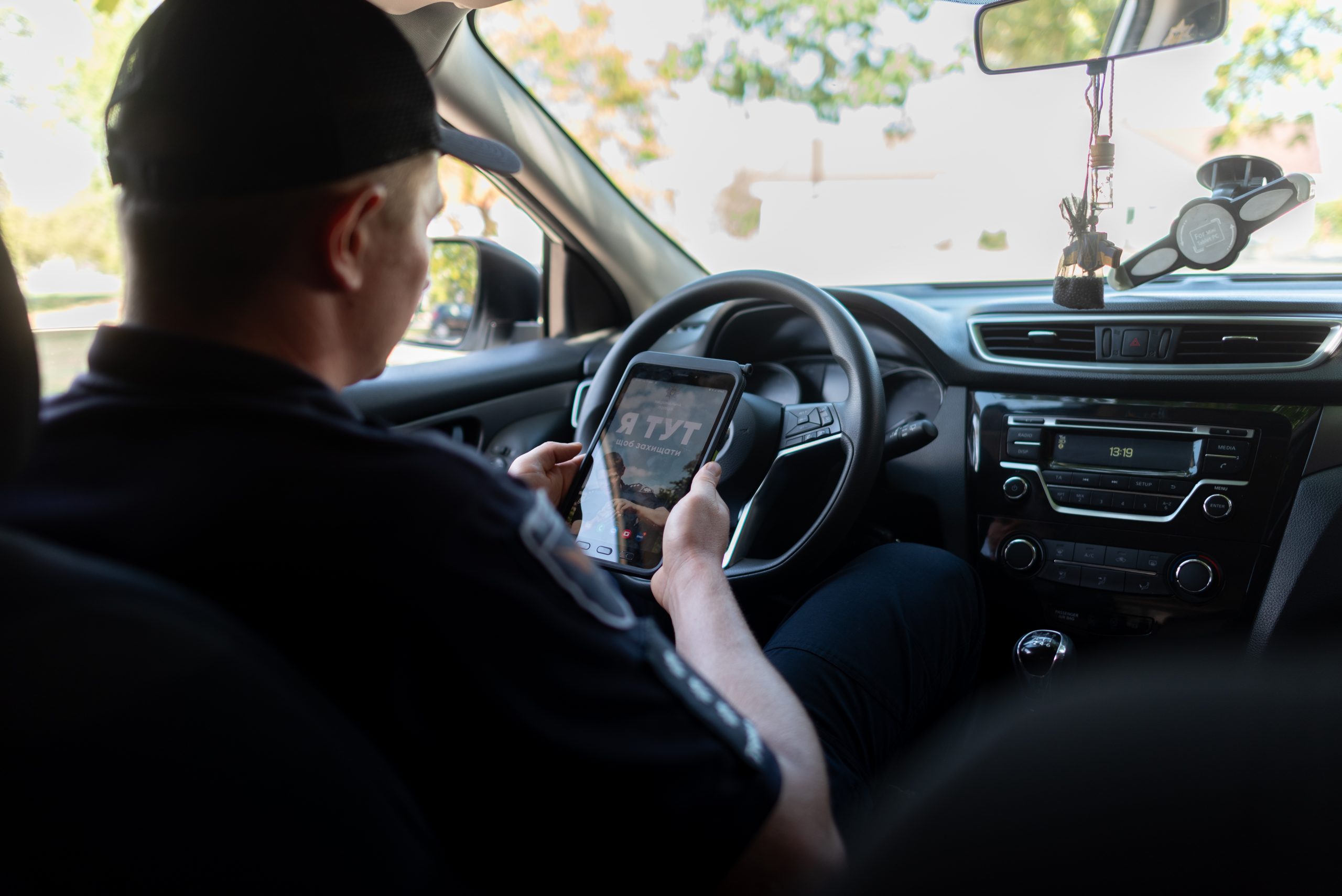Building Safety Through Trust: Work of a Community Police Officer in Kobleve
October 29, 2025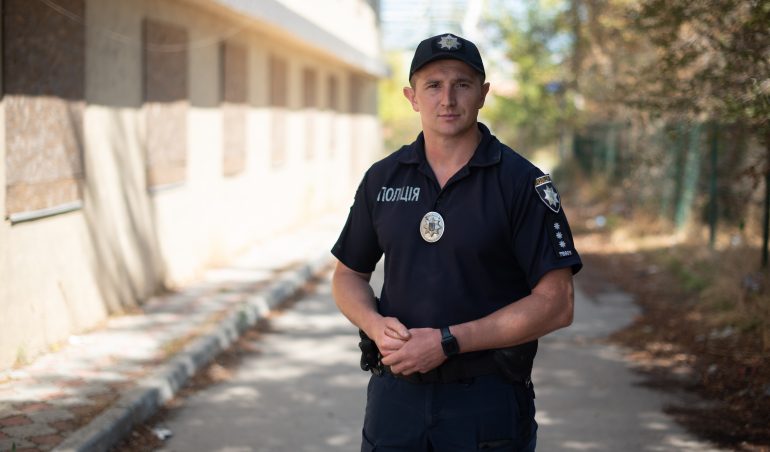
Kobleve, a small town on the Black Sea coast of Mykolaiv region, is best known as a seaside resort. In summer, its beaches and streets are filled with visitors enjoying the sun and sea breeze. Yet it’s hard to imagine that these same beaches – where thousands once came to relax and forget their worries – turned into a potential battlefield on the second day of the full-scale invasion, 25 February 2022.
“There was an attempt to land troops near Kobleve,” recalls Vitaliy, the local Community Police Officer. “The first days of the invasion were very chaotic and I helped coordinate between the military and the local community – delivering food and supplies, sharing information, and helping to build the first channels of communication and trust. There was a lot of mistrust, so we just started working together, step by step. Some people brought food, others provided fuel or warm clothes. Everyone did what they could.”
Vitaliy was born in Moldova, in the Gagauz region, but has long called Ukraine his home. Kobleve takes a special place in his life – this is where he graduated from the lyceum and this is where he returned after his military service to start a career as a policeman. You can hear a determination in his voice when he talks about his motivation.
“Military service gave me discipline and respect for hierarchy. It helped me understand that this is something I can do well. And the idea of joining the police happened naturally”.
While Vitaliy first joined the police as a District Police Officer, he later wanted to apply for a Community Police Officer position – a role with greater responsibility, but also one that offered more direct contact and feedback from the people he served.
“I didn’t succeed at first,” he recalls. “I applied for the new position in 2020 but failed one of the tests. It motivated me to prepare better for the next time, when I applied again in 2022. My test was scheduled for 24 February 2022 but, of course, it didn’t happen”. It didn’t stop him, however. When the next open call was announced in 2023, Vitaliy applied again. This time, with years of practical experience and careful preparation behind him, he finally succeeded and was appointed as a Community Police Officer for Kobleve. This story shows how thorough the selection process is and how hard it is actually to become a Community Police officer.
When driving with Vitaliy through the streets of Kobleve, now much quieter as the tourist season is over, you can see him constantly raising his hand to greet people. They greet him back, a small but genuine exchange between neighbours who know each other well. Being a Community Police Officer is not a simple job. It revolves around people, knowing them, and them knowing you. Everything comes down to trust and building that trust is at the very heart of Vitaliy’s work.
“At seven I take my son to kindergarten, and by eight I’m already at the central square near the market, sharing coffee with residents,” he says with a smile. “It’s a small ritual. We talk about how things are going, who needs help, what’s happening in the village. Sometimes it’s more useful than any official meeting.”
Vitaliy’s work today goes far beyond what many perceive as law enforcement. He supports families affected by violence, helps veterans returning from the front, and checks on displaced people who found refuge in Kobleve. His days are long, often without clear boundaries between duty and rest. “Sometimes people call late at night, they need advice or just someone to listen. You can’t ignore that – they call because they trust you.”
Some of the hardest moments in Vitaliy’s work come when he sees what children have to go through. He recalls a call about a family dispute that turned into something much worse. “When we arrived, we found three kids who hadn’t eaten since the previous evening,” he says quietly. “We brought food, called social services, and stayed until we knew they were safe. You can’t just write a report and leave. You stay until it’s solved.”
As children today face various threats, including online recruitment for violent acts such as arson or bombings, Vitaliy helps strengthen the community’s resilience by engaging with students at the same lyceum he once graduated from. During an EUAM-supported event on preventing the radicalization of children, he joined efforts to raise awareness about the risks young people may encounter on social media and in messaging platforms, especially the issue of Russian online recruiting for committing terrorist acts.
“He isn’t just a police officer; he’s the person who made our children unafraid to ask for help. He comes so often that seeing him is no longer stressful – he’s part psychologist, part educator, part teacher,” says Vira Kyrohla, Acting Director of Kobleve Lyceum.
Earlier this year, Vitaliy received one of the tablets donated to community police officers by EUAM. Back in July the Mission handed 145 tablets to the National Police in Mykolaiv, Odesa, Kherson and Kyrovohrad region to modernize policing, improve reporting, and strengthen democratic law enforcement practices.
Vitaliy says the new device makes a real difference in his daily work. “It’s much faster than what I had before, and the internet connection is much more stable,” he notes. “Now I can report incidents and access information right on the spot – it saves time that I can spend communicating with people.”
The work of community police officers like Vitaliy shows that safety begins long before an emergency – in everyday communication, trust, and presence. Supported by EUAM and equipped with modern tools, these officers strengthen the link between law enforcement and the communities they serve. Their presence shows that safety begins with human connection – a conversation in the square, a phone call answered, a helping hand when it matters most.


